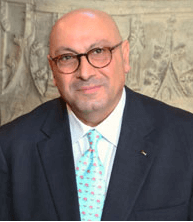
Palestine is the chance to make democracy work in the Middle East
On January 15th 2021 President Abbas announced elections to be held after 15 years, which constitutes a significant breakthrough in Palestinian internal politics. It is absolutely imperative that Denmark and the EU along with other great powers in the world support the Palestinian Authority’s quest to achieve international legitimacy as a democratically sound representation of the Palestinian people. Along with the new Biden administration and coming elections in Israel this constitutes a momentum and a real push for progress in the peace process.
Democracy is the cradle of contemporary Europe and the bedrock of US hegemony in the world. Recently we witnessed how people stormed the US Congress, the Capitol Hill in Washington, and exposed just how fragile the democratic institutions are. This even in the most developed parts of the world claiming to be the bastion of democracy.
In 2011 the Arab Spring sparked optimism into the international community that now even the traditionally undemocratic parts of the world were waking up to a new dawn to encounter the new challenges. Unfortunately, these demands for rights did not result in the expected dispersion of democracy to the Middle East and Northern Africa.
Two elections have been held in Palestine, in 1996 and 2005, dictated by the Oslo peace process. Evidently, the democratic history in Palestine is short but the two elections held were both democratically free and fair, which has been highlighted by international observers.
Since then elections have not been held for 15 years.
The reasons behind the many postponements are multiple. Some derive from disagreements between the main political factions in Palestine, Fatah and Hamas, others are directly connected to the illegal Israeli occupation of Palestinian territories. But I do not want to linger on the disagreements among Palestinian factions or the heavy price Palestinian democracy has had to pay under Israeli occupation.
However, being subject to life-long oppression and discrimination means that you become very aware of the importance of equal rights and what it means. Consequently, Palestinians have developed a deep and strong conviction about democracy and the rule of law as the way of governing and best catering to people’s needs.
By Professor Manuel Hassassian, Palestinian Ambassador to Denmark
Thus this is a welcomed opportunity to secure the continued democratic process in Palestine and the continued manifestation of democracy as the ideal form of governance in the world.
The call for democratic legitimacy from the international community
For the past 10 years President Abbas and the Palestinian Authority has received a lot of criticism for failing to have elections and solidify its democratic mandate. This has induced pressure from the EU that funding for the Palestinian Authority to build its democratic institutions and infrastructure would be curtailed if elections were not to be held.
Also the UN has called for elections and Palestinian unity, as the reconciliation of Fatah and Hamas and the unification of Gaza, the West Bank, and East Jerusalem under one single government is regarded essential.
This is also evident, as a spokesperson for UN General-Secretary António Guterres was quick to state that President Abbas’ announcement of Palestinian elections represents “crucial steps towards Palestinian unity giving renewed legitimacy to national institutions, including a democratically elected Parliament and Government in Palestine”.
The international community was reluctant to accept the 2006 Palestinian election results due to Hamas’ lack of willingness to abandon armed resistance against the Israeli occupation. Now, with Hamas accepting the PLO conditions of negotiations for peace and not pursuing a culture of violence, there is a democratic momentum for unity and consequently peace that needs to be seized.
Both the UN and the EU unequivocally support the two-state solution to the Israel/Palestine conflict with a Palestinian state built on the borders of 1967 with East Jerusalem as its capital. Furthermore, Denmark has a clear objective to ensure the democratic process in Palestine through checks and balances, which obviously includes free and fair elections.
With this alignment of interests and objectives it is imperative that Denmark and international actors help ensure free and fair elections without interference from Israel on the question of East Jerusalem.
Israel is yet to allow elections to take place in East Jerusalem, which represents a potential stumbling block for the continued democratic process in Palestine. East Jerusalem is occupied territory and has to be included in any imaginable legislative election taking place on Palestinian territory.
By Professor Manuel Hassassian, Palestinian Ambassador to Denmark
The populist enemy image
Although the Arab Spring did not succeed in democratizing the Middle East and North Africa, the regimes in the respective countries came under increased pressure. Consequently, the regimes have been busy securing and welding their power.
One of the most effective ways to gather people around a leader is the image of a common enemy, which we have seen many times in recent times. One example is Trump’s use of Mexican migrants as scapegoats, exposing them as “drug dealers, criminals, and rapists” – the major threat to American society.
In the Middle East the West with the United States at the forefront, announced Iran, Hezbollah, and Syria as the new ‘axis of evil’, the new enemy image and the great threat to security.
Former president Trump and Israeli Prime Minister Netanyahu cleverly exploited this fear to extort money and gain political support, paving the way for normalization between Israel and its historic counterparts like the Gulf countries. This while ignoring the absence of Western core values such as human rights and democracy. This is a clear example of how the US with Trump at the helm has been to so ignore the lack of very basic Western values for economic and political gains.
A strengthened peace process
President Joe Biden will work diligently to showcase the new image of the United States in the world – a new approach to achieving security and peace. This will involve a focus on human rights, democracy and strengthened diplomatic relations through trade agreements and international cooperation.
All the major players in the world are waiting for this to happen, as the flare-up of regional conflicts has been a major setback for world peace and security.
With the newly inaugurated President Joe Biden in the White House and the fourth round of elections in Israel in two years coming in March, the announcement of the Palestinian elections thus represents significantly improved conditions for the peace talks to take place.
The UN, the EU and not least Denmark must support the initial phases of opportunities that start free and fair elections in Palestine without interference from Israel.
This moment of opportunity for dialogue and peace must be realized.

.png)


